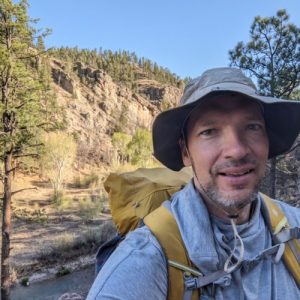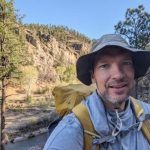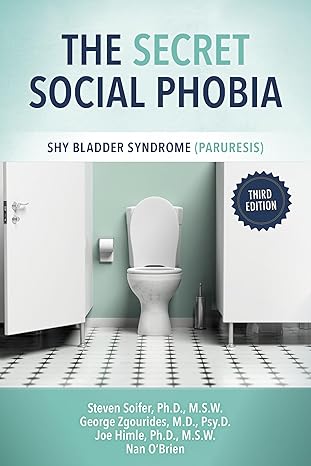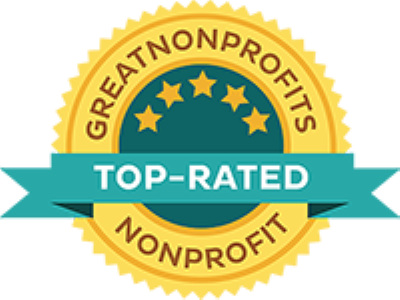Trekking with Paruresis
Simple, Not Easy
This isn’t a success story. I can’t go to the bathroom anywhere or anytime. I’ve been working on my shy bladder for years. Sometimes I am more committed than others, but I’m not cured of primary paruresis. While this isn’t a success story, the effort I’ve made on my shy bladder has made me a better person and I’m grateful to have had these experiences. If you’re reading this and suffer from paruresis, I hope you one day become cured, but if not, get to the point where you don’t let paruresis hold you back and you have disclosed your phobia to enough people where you no longer have a secret. I share my story to heighten the awareness of paruresis and to inspire others to do big things in their life.
About Me
On April 28th, 2023, I completed a 24-year Air Force career, retiring as a Lieutenant Colonel. Leading the Air Force Reserve Officer Training Program at the University of Minnesota was my final assignment and was special because it was where I went to school and received my commission. I’m a dad and husband, enjoy the outdoors, woodworking, cooking, and I’m currently trying to figure out what to do with the rest of his life. Since grade school, I’ve struggled with shy bladder, and I continue to deal with it to this day. For those reading who’ve struggled with paruresis or shy bladder, I’ve been in the same situations as you. I’ve stood in lines for stalls, got drunk so I could use public restrooms at bars, held it for hours on international flights and annoyed urinalysis testers because I couldn’t squeeze out a drop. I’ve allowed myself to be embarrassed and wondered what was wrong with me.
[Footnote: How the heck did you have a 24-year Air Force career with paruresis? Two things, 1) I have a black belt in avoidance and 2) have plenty of stories where I held it far longer than any doctor would recommend.]I don’t wish shy bladder on anyone, but I’m grateful that I have it. Yes, I said that. The therapy, International Paruresis Association workshop, graduated exposure therapy and disclosure experiences have improved my life and made me the person I’m proud to be. Therapy gave me tools for other parts of my life, the workshops and graduated exposure introduced me to several terrific and caring people, and disclosure improved my relationships with my family and friends. Life is hard, and sharing my flaws strengthened bonds and encouraged others to act.
My struggle with shy bladder has pushed me to be a person of action. 10 years ago, I dreamed of doing something awesome to culminate the end of my Air Force career. It wasn’t the standard thing to do and would put me in a situation well outside my comfort zone. Which happens to be exactly what graduated exposure does.
No Holding Back
Four days after I retired from the Air Force, I set out on a backpacking trip from the US and Mexico border near Lordsburg New Mexico to the eastern part of Yellowstone National Forest in Wyoming along the Continental Divide Trail (CDT). I wrote about it here if you are dying for the details. The adventure celebrated the culmination of my Air Force career and was an opportunity to excerpt myself physically and mentally, while giving me closure to one chapter of my life and thinking deeply about the rest of my life.
Thru-hiking is simple. You follow along a path with a backpack with the minimum required items; some combination of a shelter, sleeping bag, pad, cooking system, backpack, food, and water. It varies from hiker to hiker, but those are the basics. Thru-hikers usually spend between 4 and 7 consecutive days on the trail before hitting up a town to resupply, shower and connect with the rest of the world. The big decisions you make daily on the trail are the number of miles you walk, where you’re going to stop for lunch, and how many Oreos you eat. You’re mostly just walking.
It’s not easy. The physical toll of walking over twenty miles a day wears on you. Blister prevention and treatment are constant. Struggling with sore feet, ankles, knees, shoulders, neck, and back is commonplace. And for an old guy like me, these issues were present for months after I was off the trail. There’s also the elements and conditions; from gumball sized hailstorm atop 12,000-foot exposed mountains, to 8-foot snow drifts in the middle of July, to rushing rivers full of freshly melted run off. All of those and more make thru-hiking challenging.
A Vacation from Paruresis
I didn’t think about peeing. Shy bladder wasn’t in the trip planning and aside from a few moments in town, it wasn’t on my mind during my 100-day adventure. It was a vacation from the years of strategizing about what toilet to use and when. During my 2,000 mile thru-hike I only peed when it was an emergency, and my only avoidance was about mosquito bites. That was a significant change from my Air Force life where a morning phone call could mean a trip to a random urinalysis. There isn’t an epic shy bladder story from my time on the trail. There wasn’t a time where I thought I wasn’t going to be able to go but could and there wasn’t a time where I had to hold it for some painful length of time. During those few months I didn’t have to think about peeing.
Hiking Up Mountains and Disclosing Shy Bladder
The first person I talked to about my shy bladder was a therapist. When I made the appointment, I gave the medical receptionist the least amount of information required and generically explained that I was struggling with anxiety as it took every ounce of courage for me to place the call. After I explained my situation to the therapist, she laughed and said something like ‘you’ll go eventually.’ I wasn’t embarrassed or angry with her because I thought that was the appropriate response. I ended up working with a much more compassionate and understanding counselor for the next few months. That counselor convinced me to tell my wife. Then a decade later I told my kids, my work colleagues, and close friends.
Finally, my adventure on the Continental Divide Trail and accompanying blog was my opportunity to tell everyone else. I’m driven to motivate others to improve their lives which pushes me to share my fear of public urination. Disclosing my affliction gives me the peace of mind to know that people are not wondering about my bathroom habits. They know I’m not going #2 and that I just need privacy. Everyone in my life knows about my shy bladder. And the only thing they think about that is supporting me.
Disclosing paruresis is a daunting task. It’s easy to get embarrassed and feel awkward. Before I got comfortable with sharing, I would list all the things that would go wrong or how I’d be judged. When I told my kids, they were 11 and 13. I agonized over the conversation for days before it happened and thought through constantly on the days leading up to the big talk. I laid everything out for them and when I was done, my kids looked at me and said, ‘can we get ice cream now?’
Disclosure sucks the same way hiking up a mountain sucks. The night before I was set to hike up the highest peak on the CDT, Grays Peak, I mentally psyched myself out. I could see the ridgeline leading to the summit and told myself the ridge was too covered in snow and ice to be safely passable. I thought I saw pitfalls in the distance, and I doubted my ability to overcome them. The morning of the ascent, the fog was dense, and visibility was less than 10-feet. Because of the fog, I could no longer fret about the ridgeline because I couldn’t see it. I was forced to focus on the trail beneath my feet and be in the moment. There was plenty of snow and ice on the ridgeline, but it wasn’t anything that I couldn’t overcome. My predictions were wrong, and I made it to the pinnacle that morning and enjoyed some Cheetos at 14,200 feet.
Disclosure is like my hike up Grays Peak. We have all these predictions about how people are going to react, but if we stay in the moment and put one foot in front of the other, we get to enjoy the sense of accomplishment when it’s done. I’d recommend Cheetos to celebrate.
I Could Never Do That
That’s a common response I get from non-thru hikers when I tell them about my trip. It’s also a response I get when I share that story to some who struggle with shy bladder who haven’t embraced disclosure. Neither of them is true. If you are without a physical disability preventing you from walking a couple of miles, you can thru-hike the CDT. If you can effectively communicate with people, then you disclose to them about your shy bladder. I’ve heard excuses ranging from unsympathetic parents, extremely macho guy friends and concerns about passing it on to your children because you told them that shy bladder exists. We can overcome those obstacles and will be rewarded when we do.
Eliminating the secret from my life has been a vital part of my path. What I’ve described likely sounds simple, but I know that it’s not easy.
Jonathan Carter, Minnesota – October 2023
QUICK LINKS
INTERNATIONAL PARURESIS ASSOCIATION
P.O. Box 21237
Catonsville, MD 21228
You Are Not Alone.
There Is Help For You!
Shy Bladder, Bashful Bladder, Pee Shy
IPA OFFICE HOURS
Monday - Friday
10:00am - 6:00pm (ET)
844-I-CANT-PEE (422-6873)
US/Canada
443-315-5250 Office
Email: getinfo@paruresis.org
This website is NOT a substitute for medical or legal advice and does not constitute the practice of law, medicine, psychiatry, clinical psychology, clinical social work, or any other mental health profession. If you are having trouble urinating, you should always contact a physician since difficulty with voiding can be a symptom of a serious medical condition. We are a group of professional people and people who have suffered with paruresis. We have assembled a board and a board of advisors to help people cope with urinary dysfunction that has a psychological or social origin. On this website, we are NOT practicing medicine, psychiatry, clinical psychology, clinical social work or any other mental health profession. You should have your doctor evaluate your condition before diagnosing yourself, and seek the appropriate necessary mental health counseling if warranted. IPA, Inc. disclaims any and all legal liability whatsoever. Use of the term “member” or “membership” refers to donors above $100 each July 1 to June 30 period and does not convey any legal or ownership rights in IPA.






